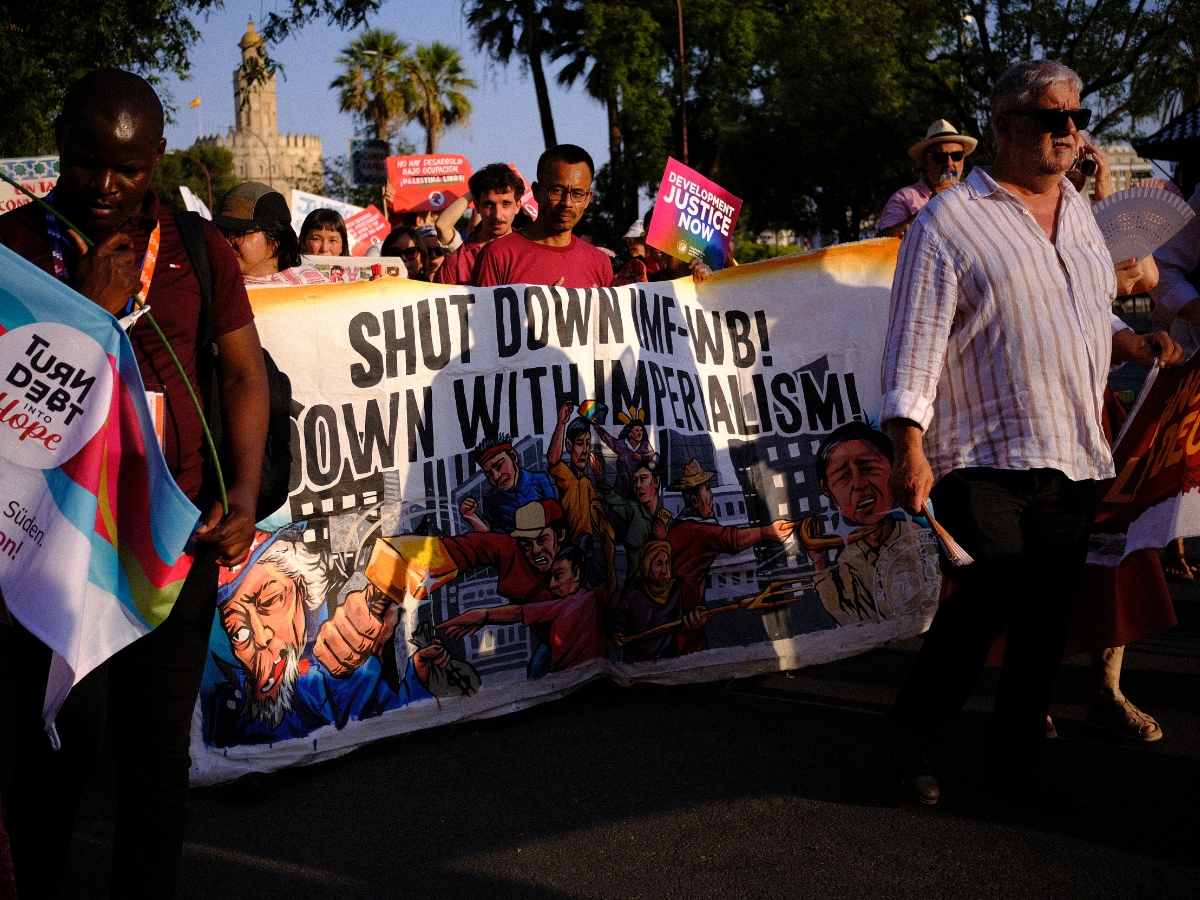This declaration is not just a critique. It is a roadmap for transformation. It offers bold, people-centered alternatives to a global economic system that prioritizes corporate profits over human rights, and power over participation.
What Civil Society Demands: Key Messages from the Declaration
1. Systemic Reform of the Global Financial Architecture
The current international financial system is structurally unjust, reproducing colonial legacies and entrenching power imbalances. Civil society calls for a complete overhaul of global financial governance—including democratic control of the IMF, World Bank, and multilateral development banks—under the leadership of the United Nations.
2. A Fair and Inclusive Global Tax System
The declaration supports the establishment of a UN Framework Convention on International Tax Cooperation. This is a historic opportunity to end the dominance of rich countries over global tax rules, stop large-scale tax abuses by corporations and billionaires, and ensure resources are directed toward public services.
3. A Shift from Private Finance to Public Accountability
The dominant “private finance first” model—driven by blended finance, PPPs, and private capital mobilization—is failing. It increases debt, erodes accountability, and commodifies essential services like health and education. The declaration calls for public investment based on rights, not returns.
4. Recognition and Redistribution of Unpaid Care Work
Unpaid care work, mostly done by women, is a hidden subsidy to the global economy and a barrier to gender equality. The declaration demands public investment in integrated care systems and recognition of care as a human right and a public good.
5. Climate and Environmental Justice
Civil society denounces the omission of key climate justice measures from the Sevilla Commitment, including the phaseout of fossil fuels and commitments to scale up public climate finance. They reject “market-based solutions” and demand ecological reparations from the Global North.
6. Debt Cancellation and Sovereign Debt Justice
Nearly half the world lives in countries that spend more on debt than on healthcare or education. The declaration calls for a binding UN Convention on Sovereign Debt to ensure just and transparent debt cancellation processes that prioritize human rights and environmental resilience.
7. A Feminist and Intersectional Approach to Financing
The declaration centers feminist economics and demands that financing for development address the structural roots of inequality—including race, gender, class, disability, and caste. It calls for universal social protection, living wages, and full economic inclusion.
8. Trade Justice and Policy Space
Civil society denounces the trade measures imposed by Global North countries that undermine sustainable development in the South, including green protectionism and investor-state dispute settlement mechanisms. They call for trade rules that respect national sovereignty, food security, and workers’ rights.
9. Democratic Governance of Technology
The declaration criticizes the technocratic and corporate-led approach to science and technology governance. It calls for a UN Global Technology Assessment Mechanism to evaluate the social, environmental, and rights impacts of emerging technologies like AI and crypto—before they are deployed.
10. Reclaiming Development Cooperation
Official Development Assistance (ODA) is being militarized and redirected toward donor priorities. The declaration calls for a UN Convention on International Development Cooperation rooted in justice and mutual accountability, shifting the narrative from charity to reparations.
“Nothing About Us Without Us”
As civil society we were sidelined throughout the FfD4 process—excluded from key negotiations, denied access to draft texts, and marginalized during the Conference itself. The declaration denounces this exclusion and calls for a transparent, intergovernmental process to follow up on Sevilla and prepare for a Fifth FfD Conference in 2030.
Why This Matters
This declaration is a collective political act. It names the systems of injustice that shape our global economy, exposes the failures of multilateralism captured by corporate and Northern interests, and outlines the structural changes needed to uphold rights, equity, and sustainability.
This is not a moment for tinkering around the edges. It is time to reclaim financing for development as a tool for liberation, not subjugation.


